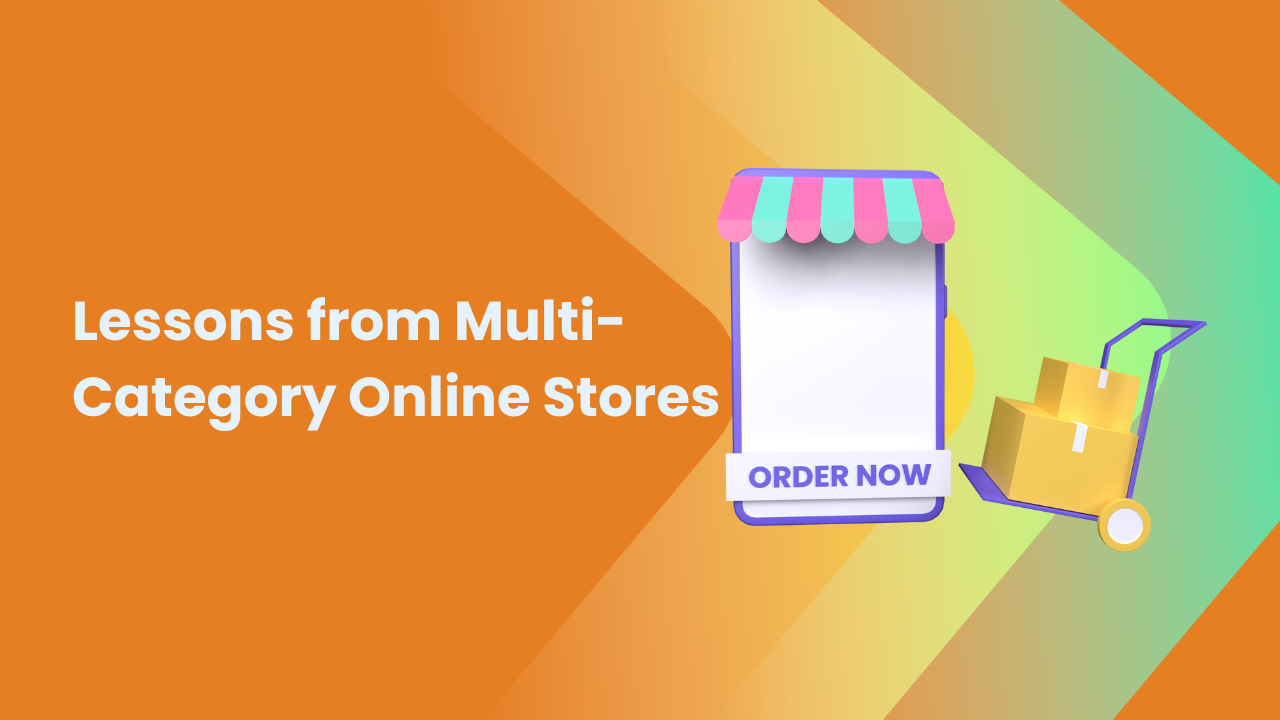Share this Article
The rapid growth of the e-commerce industry in Nepal has opened up immense opportunities for businesses and entrepreneurs. With more consumers turning to online shopping, the demand for e-commerce stores has skyrocketed. However, as the digital marketplace expands, so does the risk of cyber threats. For Nepali e-commerce business owners, protecting their online stores from cyber-attacks is no longer an option but a necessity. Cyber-attacks, data breaches, and other forms of malicious activity can devastate your business by damaging your reputation, compromising customer trust, and leading to financial losses.
This comprehensive guide will walk you through the essential steps to secure your online store from various cyber threats, ensuring that your customers’ data remains safe and your business continues to thrive. Whether you are running a small online store or managing a large e-commerce platform in Nepal, these strategies will help you build a robust cybersecurity infrastructure to fend off potential threats.
1. Creating Strong Passwords and Enabling Multi-Factor Authentication (MFA)
Passwords are the first line of defense against unauthorized access to your online store, email accounts, and payment systems. Weak or predictable passwords, such as “password123” or “admin,” are prime targets for cybercriminals. To protect your online business, always ensure that you use strong, unique passwords for each of your accounts and services.
Best Practices for Strong Passwords:
- Use a combination of characters: A strong password should include a mix of uppercase letters, lowercase letters, numbers, and special characters.
- Avoid personal information: Do not use easily guessable details, such as your business name, phone number, or birthdates.
- Length matters: Aim for passwords that are at least 12 characters long.
- Use a password manager: Password managers help you create and store complex, unique passwords for each service.
In addition to strong passwords, it’s crucial to enable multi-factor authentication (MFA) for an extra layer of security. MFA requires users to provide two or more verification methods to access their accounts, such as a password and a one-time code sent to their mobile device. Implementing MFA on all business-critical accounts can drastically reduce the likelihood of unauthorized access.
2. Regularly Update Your Website and Software
Keeping your e-commerce platform, plugins, and software up to date is one of the simplest yet most effective ways to protect your online store from cyber-attacks. Outdated software often contains vulnerabilities that can be exploited by hackers to gain unauthorized access to your website or server.
Why Regular Updates Are Crucial:
- Fix security vulnerabilities: Developers release updates to patch security holes and eliminate bugs that could be targeted by cybercriminals.
- Enhance functionality: Updates often bring new features and improved functionality that can enhance the security and usability of your online store.
- Prevent compatibility issues: Regular updates ensure that all elements of your website, including third-party apps and plugins, remain compatible.
Make it a habit to check for updates regularly. If possible, enable automatic updates for your platform and software so that you don’t miss any important security patches. However, ensure that the updates are tested in a staging environment before going live to avoid compatibility issues.
3. Secure Your Website with SSL Encryption
An essential security measure for any e-commerce business is implementing SSL (Secure Sockets Layer) encryption. SSL encrypts the data exchanged between your website and your customers’ browsers, ensuring that sensitive information, such as payment details, login credentials, and personal data, remains private.
Benefits of SSL Encryption:
- Data security: SSL ensures that the data shared between your customers and your website is encrypted and cannot be intercepted by hackers.
- Builds customer trust: Websites with SSL certificates display a padlock icon in the browser’s address bar, signaling to customers that their data is being securely transmitted.
- Improves search engine rankings: Google gives preference to secure websites (those using HTTPS), so having SSL can improve your website’s SEO ranking.
For Nepali e-commerce businesses, obtaining and installing an SSL certificate is relatively simple. Most hosting providers offer SSL certificates as part of their hosting packages. If you haven’t already, ensure that your website uses HTTPS encryption to protect your customers’ information.
4. Implement a Web Application Firewall (WAF)
A Web Application Firewall (WAF) is a critical tool for blocking malicious traffic before it reaches your website. WAFs analyze incoming traffic and filter out suspicious requests, preventing cybercriminals from exploiting vulnerabilities in your website. They can defend against attacks like SQL injection, cross-site scripting (XSS), and other common threats.
Why WAFs Are Important:
- Block malicious traffic: WAFs protect your website from harmful requests that can damage your site or steal data.
- Prevent DDoS attacks: Distributed Denial of Service (DDoS) attacks overwhelm your website with fake traffic, causing it to crash. A WAF can identify and block such attacks before they can harm your site.
- Layered defense: WAFs serve as an additional layer of security alongside your existing firewalls, providing enhanced protection for your online store.
Many e-commerce platforms offer built-in WAF protection, but you can also invest in third-party services like Cloudflare or Sucuri to further bolster your store’s defenses.
5. Use Secure and Reliable Payment Gateways
As an online retailer, ensuring the security of payment transactions is crucial. Since your customers will be entering sensitive financial information, using a secure and reliable payment gateway is essential to protect them from fraud and identity theft. Ensure that your payment gateway complies with the Payment Card Industry Data Security Standard (PCI-DSS) regulations.
Key Features to Look for in Payment Gateways:
- Encryption: Look for payment gateways that encrypt transaction data using SSL or TLS.
- Fraud detection and prevention: Choose a gateway with built-in fraud protection tools, such as address verification systems (AVS) and card verification value (CVV) checks.
- Support for secure payment methods: Popular, secure payment methods include credit/debit cards, digital wallets (like PayPal), and bank transfers.
For Nepali e-commerce businesses, consider using well-known payment gateways like PayPal, Stripe, or local services that offer robust security features. Always avoid storing sensitive customer payment details on your servers; instead, let your payment gateway handle these transactions securely.
6. Backup Your Data Regularly
Data loss can occur for a variety of reasons, including cyber-attacks, server failures, or accidental deletion. To protect your online store from potential data loss, regular backups are essential. By backing up your website and database frequently, you can restore your site to its previous state in case of an emergency.
Types of Backups:
- Full backups: A complete backup of your website’s files, database, and other important data. This should be done periodically, especially before major updates or changes.
- Incremental backups: These backups only capture changes made since the last backup, reducing the amount of data stored and the time required for backups.
Make sure that your backups are stored securely, ideally offsite or in the cloud, to prevent data loss in case of server failure or a cyber-attack. Additionally, test your backups regularly to ensure they can be restored successfully when needed.
7. Monitor Your Website for Suspicious Activity
Continuous monitoring of your website for suspicious activities is crucial to detect potential threats early on. Many e-commerce platforms and third-party security services offer tools to monitor your website for signs of hacking attempts or unusual behavior.
What to Watch for:
- Unusual login attempts: Monitor failed login attempts and lock out users after a certain number of unsuccessful tries.
- Sudden changes to content: Keep an eye on product listings, pricing, and other content on your website to ensure they haven’t been tampered with.
- Unexplained traffic spikes: If you notice a sudden surge in traffic from suspicious sources, it may indicate a DDoS attack or a bot trying to exploit vulnerabilities.
By monitoring your website in real-time, you can detect and respond to potential threats before they cause significant damage.
8. Educate Your Team and Employees on Cybersecurity Best Practices
Cybersecurity is a team effort. Your employees must be trained to recognize and avoid potential threats. Phishing emails, social engineering attacks, and poor password management are common causes of data breaches.
Key Topics for Employee Training:
- Recognizing phishing attempts: Employees should be trained to spot suspicious emails and avoid clicking on links from unknown senders.
- Secure password management: Teach your team to create strong passwords and use password managers to securely store login credentials.
- Reporting suspicious activity: Encourage employees to report any unusual behavior or potential security threats immediately.
By educating your team, you reduce the risk of human error leading to security breaches.
9. Comply with Data Privacy Regulations
As e-commerce businesses in Nepal continue to grow, so does the importance of complying with data privacy regulations. The Personal Data Protection Act in Nepal outlines how businesses should handle personal data to protect consumers’ privacy. Compliance with such regulations not only ensures that you avoid legal penalties but also builds trust with your customers.
Steps to Ensure Compliance:
- Transparency in data collection: Clearly explain what personal data you collect from customers and how it will be used.
- Obtain consent: Always seek customer consent before collecting sensitive information.
- Secure storage: Store customer data in encrypted databases and ensure it is only accessible to authorized personnel.
- Allow data access and deletion requests: Give customers the ability to access their data or request deletion as per the regulations.
Following data privacy laws will help you avoid legal issues while enhancing your reputation as a trustworthy business.
Conclusion
Protecting your online store from cyber threats is essential for building a secure, successful, and sustainable e-commerce business. By implementing strong passwords, securing your website with SSL encryption, using reliable payment gateways, backing up your data, and monitoring your site for suspicious activity, you can reduce the risk of cyber-attacks. Additionally, educating your team on cybersecurity best practices and complying with data privacy regulations will help you safeguard your customers’ data and maintain their trust.
In Nepal, where e-commerce is experiencing rapid growth, securing your online store from cyber threats is not just about technology; it’s about protecting your reputation, financial security, and customer relationships. By following these best practices, you can create a secure shopping environment for your customers and protect the future of your business.
Categories:
E-commerce Tips & Tutorials
Tags:
EcomSecurityShield
,
NoBreachZone
,
SecureCartJourney
,
HackProofHustle
,
EncryptToProtect







